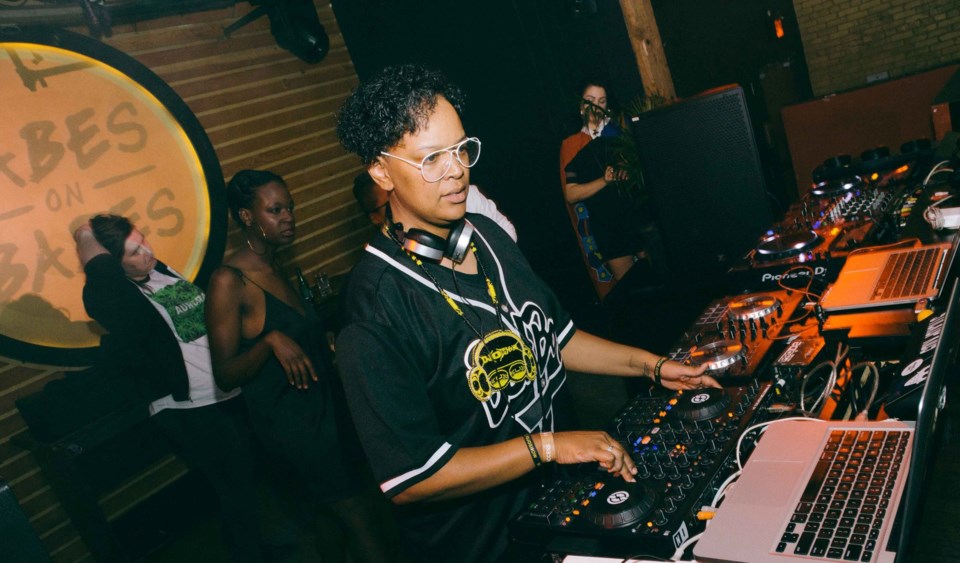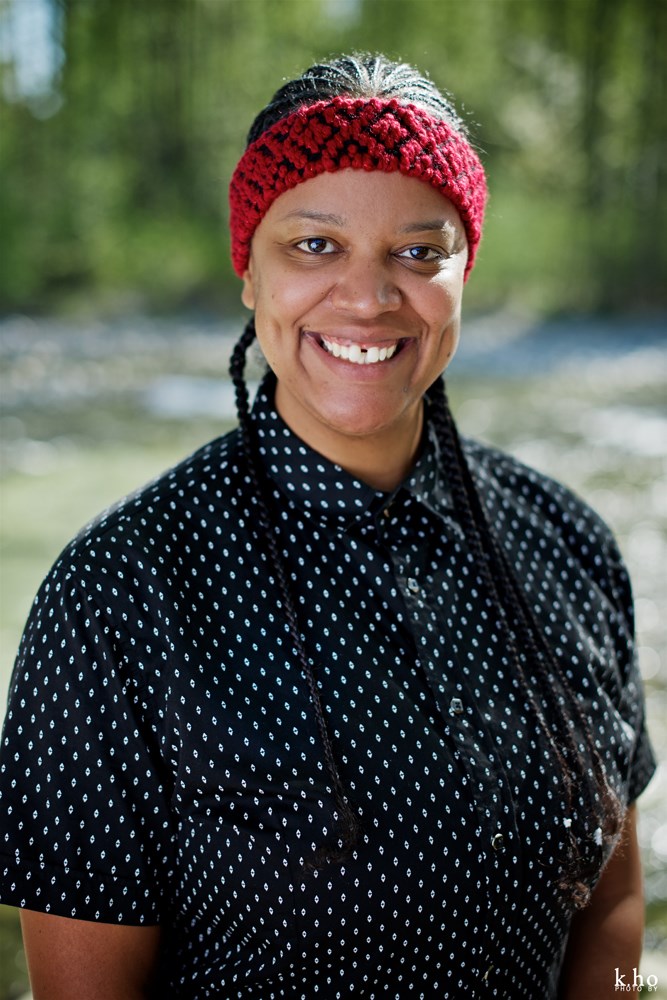In person, over the phone, in videos or on her social media feed, Orene Askew's "brand" is positive. Whether she is talking about Indigenous issues or being two-spirited, she exudes positivity.
With a thorough conversation with her you soon realize her positivity isn't a mask that she wears or brand she promotes, but is her true personality. Askew, a.k.a. DJ O Show, smiles a lot, sees the best in people and looks on the bright side of things.
The Squamish Chief caught up with Askew, who is half-way through her term as a first-time councillor on the Squamish Nation council, for a wide-ranging chat.
What follows is an edited version of that conversation.
Q: What is your relationship to the District of Squamish? Do you come here often?
A: I do for meetings and I participated in the first Pride Squamish event in the summertime. That was a lot of fun. Squamish Nation had a booth and I was really surprised how well it went, considering it was the first year. [Askew is an outspoken advocate for LGBTQ+ rights and was awarded the Kimberly Nixon Trans, Two-Spirit, Gender Non-Conforming Contribution to Community Award by the Vancouver Pride Society in 2018.]
Q: Can you tell me about how you grew up and where?
A: I grew up in BC Housing in North Vancouver until I was about 13 and then my mom and my siblings and I moved to the Capilano reserve. I still live there now.
Q: When you were growing up, were you very connected to your culture?
A: Yes. The interesting thing about me is I am mixed race. I am half African-American and half Squamish First Nation. I grew up on the reserve and I don't look like your typical Indigenous person. But that was what was all around me and what I have been infused with — Squamish culture. I live it and breathe it ,but I don't necessarily look like a Squamish person. I feel right at home here, though.
Q: Being on Squamish Nation council, was that something you always aimed for?
A: About seven years ago I started working with youth in entrepreneurship and leadership. The opportunity came to run for council and someone nominated me. I thought, 'I think I can really do this!' I was not expecting to get in, but I was lucky number 16 in that hard-fought election. It has been an amazing experience so far. I love working on behalf of my people.
Q: You were at the Nation's big housing Sen̓áḵw project referendum announcement recently. I am sure that was a highlight?
A: Honestly, we did information sessions down in the U.S. and on the Island, in our community and up in Squamish and I think that was the fun part of it — answering questions about what the benefits are for our people and our future. That was a lot of fun for me.
Q: You have interesting dual roles: on council, governing — which can be intense with the feedback — and then as a DJ where people are dancing and happy. How do you balance the two sides of what you do?
A: It is like being in two completely different worlds. It is tough sometimes with council, you have to have a pretty thick skin. I am a pretty positive person — I am a motivational speaker as well, for youth across the country. Sometimes [the negativity] can get me down, but I get to go to another world in DJing where I play music and people look at me like I am the best thing that has happened in their lives. It is great. I love what I do. I teach DJing privately as well and it is great to see some of my students who are out there getting more gigs than I do. As we learn about our culture, we are taught, if you have the knowledge, you should pass it down to younger people. So that is what I try to do with my business DJing, help create more DJs who can do the same thing that I am doing.
Q: When did you first realize that being a DJ was a thing you could do?
A: My first concert was when I was 10 years old. I went to see SWV concert, they were popular in the 1990s. My council took me to the concert and that type of music changed my life. I love going to concerts.
Also, my background is radio broadcasting as well. I went to BCIT and took the intense radio program for two years. I survived. Then I went to the U.S. for a bit to do it and came back. But then I was thinking my community needs me so I am going to stay right here and help out as much as I can.
Q: When did you start performing as a DJ?
A: About seven years ago I got a grant from the Squamish Nation Trust to get DJ equipment. It has been word of mouth since then. I am one of the few female, Indigenous DJs in Vancouver. There's not very many of us, so I get calls for gigs quite a bit.
But there's nothing better than DJing for my own Nation. It is so much fun. You see everyone you know. You see certain people and you know exactly what songs to play.

Q: You have said before that DJing was a boys' club. Is it still?
A: It is definitely better than when I first started. I feel like it is the older DJs that think the new technology of the younger DJs is not as good. I also had to prove myself — that I could handle it. I will be in meetings with all men and I have to pitch an idea and at first, it was like they were using me as an experiment, but then I proved that lots of people will come out to see me and they request me now. I think I am getting respect now, but not so much in the beginning. I feel like there are more female DJs coming out, which is a very good thing. My students will talk about competition and I will say, 'There isn't really a competition, because no one is going to play the way you do.'
Q: Anything else you want to say about being a DJ?
A: I DJ'ed for The Canucks last week, and that was fun. They invited me out because it was Indigenous night, where they honoured the Musqueam, Squamish and Tsleil-Waututh Nations.
Q: In terms of the Squamish Nation, so much has happened in the last few years. What do you hope for, for the Nation, long-term?
A: I am hoping with these new developments that are coming up that we learn how to develop ourselves. The Sen̓ákw project is a 50-50 partnership with Westbank. One of the things I heard in the community is that we should be doing it 100%. I let people know, we will get there, but this is the starting point for doing development 100% ourselves. We have to start somewhere and I am just glad we are laying the groundwork. And I want to give respect to all the past councillors and elders, ancestors who helped us get to where we are at, because we are in a really good place right now.



